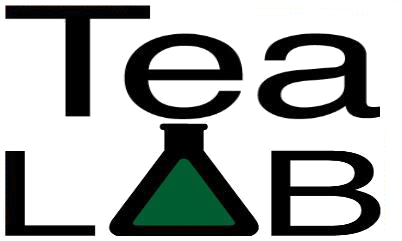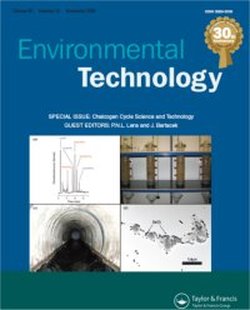 Properties of vermicompost aqueous extracts prepared under different conditions Journal of Environmental Technology August 2016 Link Here Have you ever wondered why aerating your tea makes all the difference? Well a group of scientists from the Czech University of Life Sciences did. They too their wonder and turned it into a science experiment. The curious life scientists wanted to see the difference in plant available nutrients in aerated vs. non-aerated teas. To do this, they tested two different vermicomposts, one made with grape pomice, the other horse manure. The composts were placed in buckets and were either aerated or just stirred. The scientists then sampled the brew every 6 hours and tested the tea for: pH, EC, N, P, K Ca, Mg, and a couple of other parameters. They then used statistics to compare the numbers. Their findings were remarkable. All macronutrient levels increased in the aerated teas. Available nitrates levels more than quadrupled. Phosphorus and Calcium increased by one third. Potassium and Magnesium doubled. Interestingly, the majority of the nutrients were made available in the first 6 hours, having reached their maximum at 48 hours. The reasons for these nutrients becoming available is attributed to oxidation reactions occurring in the aerated water, as well as microbial forces acting on the compost material. This study helps us to identify yet another source of compost tea's goodness. Thanks science!!!
0 Comments
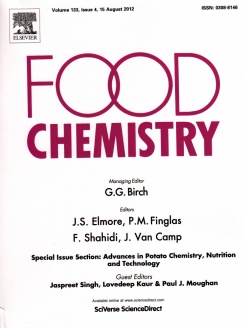 Metabolomics for organic food authentication: Results from a long-term field study in carrots Food Chemistry January 2018 Link Here A groundbreaking study done by a group of international scientists working out of Belgium has shown that organic produce is identifiable through DNA testing. An area of study called Metabolomics has made this possible. Metabolomics studies the chemical fingerprints left by specific cellular processes. By looking at what chemicals are left in a cell, scientists are able to determine what has occurred in that cell. Because plants utilize different metabolic pathways depending on their growth conditions, scientists can look for specific metabolites that indicate organic or synthetic fertilizer sources. The actual process involves identifying and quantifying specific mRNA and proteins, then running that information through statistical analysis to determine if the fertilizer source. In this study on carrots, if researchers knew the harvest year, they were able to identify with 100% accuracy whether or not the root vegetables were of organic origin. If they did not know the harvest year, the success rate was 70-100%. This study will help to ensure there is no counterfeit produce in the organic section at the market. More importantly, it shows that organic produce is technically different than synthetically grown produce. The residual metabolites found in organic produce could be valuable compounds leading to greater health in those that consume them. This study has many implications, we look forward to learning about all of them. 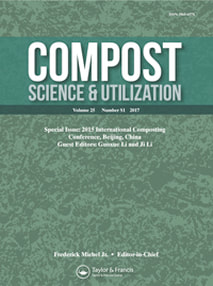 The Effects of Soil Solarization and Compost on Soil Suppressiveness against Fusarium Oxysporum f. sp. Melonis Compost Science and Utilization March 2017 Link Here Soil Solarization is a common low-cost process used to kill soil borne pests and pathogens. Soil is cultivated, moistened, and covered with clear plastic during hot summer months. The plastic covering collects heat from the sun, which is dissipated throughout the moist soil. The soil can heat to above 140F, killing disease causing organisms. Beneficial organisms have adapted to be able to withstand this heat. There are some issues, like whether or not the soil is able to get hot enough to actually do the job. In northern latitudes and coastal climates, the daytime temperatures may not suffice, which can actually exacerbate the problem. The A group of scientists in Jerusalem wanted to know if compost could help the process. In a simple experiment, melon seedlings were inoculated with fusarium spores and then planted in several soil conditions: non-solarized soil, solarized soil without compost, and solarized soil with compost. Interestingly, the researchers found the compost with non-solarized soil, provided the best resistance to fusarium. Compost with solarized soil was also beneficial. Since the melon seedlings were certainly exposed to the pathogen, the scientists concluded that solarization actually may be decreasing the microbial biomass enough so much that fusarium was able to become the dominant organism. With the addition of compost, the load of beneficial organisms was able to keep the fusarium in check, thereby reducing the disease occurrence. The take home lesson from this experiment is: if you solarize your soil, add compost in order to maintain a healthy population of beneficial microorganisms. 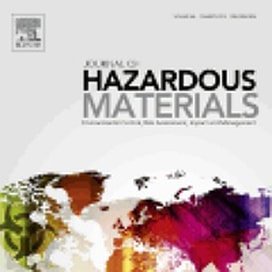 Biochar accelerates PAHs biodegradation in petroleum-polluted soil by biostimulation strategy Journal of Hazardous Materials February 2018 Link Here Pollution is a pretty big problem worldwide, especially in China. Years of lax regulation has created land, water, and air that are far from optimal when it comes to plant and human health. Remediation of theses polluted natural resources is of a growing concern for both public health and future economics. A group of scientists from the Shijiazhuang University in Hebei, China wanted to see what effect biochar has on helping petroleum polluted soils. Specifically, they looked at biochar made with either sawdust or wheat straw, cooked at either 300C or 500C, and their effect on reducing Polycyclic Aromatic Hdyrocarbons (aka PHAs). The biologically-minded scientists found that the addition of biochar helped to reduce soil PAH content, though only significantly so with the biochar produced under the hotter, 500C preparation. There was no difference in results between sawdust of wheat straw. Laboratory analysis showed that the addition of biochar actually promoted the growth of PAH degrading bacteria. The experiment showed that the high-heat biochar established favorable soil conditions for microorganisms able to degrade the toxic PAHs. Studies like this show that biochar is likely to play a major role in soil remediation worldwide. |
Archives
June 2024
Categories
All
|
Contact Us
Why TeaLAB?TeaLAB is committed to helping people and their gardens to become more self- sufficient, healthier, and productive. Grow your sweetest corn, your biggest watermelon, your tallest quinoa, your tastiest tomato, and your happiest you.
TeaLAB was founded to teach people how to garden organically, so that we can become more closely connected with the land. Our goal has been to simplify growing methods so that gardeners have a positive experience in the garden. TeaLAB is where the garden meets the laboratory. From around the world and into your backyard, our products contain ingredients that are sourced both locally and globally. Using methods both ancient and cutting edge, TeaLAB promotes maximum biology. Grow with TeaLAB. |

 RSS Feed
RSS Feed
